1. Routines
1.1. It's not so much about having perfect routines
1.2. As it is about sticking to the routine
1.2.1. No matter what
2. On Learning and Becoming the Best
2.1. System 2 Learning
2.1.1. Book Referred: Thinking fast and Slow
2.1.2. System 1
2.1.2.1. Automatic and fast
2.1.2.2. Default mode of thinking
2.1.2.3. Requires less energy
2.1.2.4. Autopilot
2.1.3. System 2
2.1.3.1. Slow, Thoughtful, Analytical
2.1.3.2. We turn on System 2 to figure out something new
2.1.3.2.1. Challenging
2.1.3.2.2. Struggle
2.1.3.3. True learning requires System 2
2.1.4. How learning happens
2.1.4.1. Neurons and Axons
2.1.4.2. When we learn something new
2.1.4.2.1. Electrical activity travels between neurons along axons
2.1.4.2.2. Initially connections are weak
2.1.4.2.3. If we decide to not struggle
2.1.4.2.4. If we decide to struggle
2.1.4.2.5. If we struggle with something long enough
2.1.4.3. Best learning happens when
2.1.4.3.1. We have to work for it
2.1.5. Constantly Challenge yourself
2.1.5.1. Example: Body Building
2.1.5.2. Current challenge is just outside your skill level
2.1.5.2.1. Forces you to struggle
2.1.5.3. You must seek those out
2.2. Deliberate Practice
2.2.1. Anders Ericsson
2.2.1.1. Berlin Academy of Music
2.2.2. Recommended Book: Peak - Anders Ericsson
2.2.3. Studying violinists
2.2.3.1. The very best
2.2.3.2. The ones who are likely to end up as teachers
2.2.3.3. Number of hours practiced was not different
2.2.3.3.1. Identical. 50 hours
2.2.4. Difference = Quality of Practice
2.2.4.1. Intensely focussed on a goal
2.2.4.2. Totally present
2.2.4.3. Eliminated all distractions
2.2.5. Top Performers
2.2.5.1. Just manageable challenges
2.2.5.2. Having goals for practice sessions
2.2.5.3. Deep concentration
2.2.5.4. Struggle = Growth
2.2.5.5. Engaging with Singular focus
2.2.5.6. Single Tasking
2.2.5.6.1. U Mich Study
2.2.6. Great work requires
2.2.6.1. Intense Focus
2.2.7. Blocks of Stress and recovery
2.2.7.1. You can only sustain intense focus for 60-90 minutes
2.2.7.2. Follow it with 10-20 minute break
2.2.8. Recommended Book: The Power of Full Engagement
2.3. Skills come from struggle
2.3.1. Study
2.3.1.1. High school students
2.3.1.1.1. 1 group
2.3.1.1.2. 2nd group
2.3.1.1.3. Who had better grades in test?
2.3.2. Most effective tutoring system
2.3.2.1. Delay instructions until students are close to point of failure
2.3.2.1.1. Skills come from struggle
2.3.3. Greatest gains often come from
2.3.3.1. Immense pain and struggles
2.3.4. Productive Failure
2.3.4.1. Coming up short in face of a struggle
2.3.4.1.1. Opportunity to analyze a problem from different angles
2.3.4.2. Don't seek out support until you have failed and struggled a lot
3. On Handling Pressure and Stress
3.1. Purpose and Values
3.1.1. How to become capable of more than you ever thought you could
3.1.1.1. Having a purpose bigger than yourself
3.1.1.1.1. Ego is always trying to protect us
3.1.1.1.2. When something is bigger than ourselves, our ego is minimized
3.1.1.1.3. when we minimize ego - the fears, anxieties etc just disappear
3.1.2. Values
3.1.2.1. National Academy of Sciences Publication
3.1.2.1.1. fMRI scans of brains of people receiving threatening messages
3.1.2.1.2. One group was asked to reflect on their deepest values before receiving such messages
3.1.2.2. Similar Experiment
3.1.2.2.1. Book: Presence by Amy Cuddy
3.1.3. Purpose reduces burnout
3.1.3.1. Energizes us
3.2. Stress Chemistry
3.2.1. Recommended Book: Upside of Stress
3.2.2. Stress Hormones
3.2.2.1. Cortisol
3.2.2.1.1. Chronically high cortisol leads to
3.2.2.2. DHEA: DeHydroEpiAndrosterone
3.2.2.2.1. Reduces risk of
3.2.2.2.2. Helps brain grow
3.2.3. Growth Index of Stress = DHEA/Cortisol
3.2.3.1. When stressed
3.2.3.1.1. You want higher DHEA than Cortisol
3.2.4. Challenge Response to Stress
3.2.4.1. Higher DHEA
3.2.4.2. Leads to health benefits of stress
3.2.5. Threat Response to Stress
3.2.5.1. Higher Cortisol
3.2.6. Study of 200 Elite and Non Elite Swimmers
3.2.6.1. Before a Big Race
3.2.6.1.1. They all felt similar levels of stress
3.2.6.1.2. Elite
3.2.6.1.3. Non-Elite
3.2.7. Journal of Experimental Psychology
3.2.7.1. Telling yourself "I am excited"
3.2.7.1.1. Shifts you from Threat response to challenge response
3.3. Stress + Rest = Growth
3.3.1. Periodization
3.3.1.1. Cycling stress and rest
3.3.1.2. Body building
3.3.2. Same is true for creative/Mental Pursuits - csikszentmihalyi
3.3.2.1. Pursue with Extreme intensity
3.3.2.2. Or Complete Rest and Recovery
3.3.2.3. 3 Step process in all great intellectual pursuits
3.3.2.3.1. Immersion
3.3.2.3.2. Incubation
3.3.2.3.3. Insight
3.3.3. Josh Waitzkin
3.3.3.1. Create a rhythm of stress and recovery in order to become world class
3.3.4. Power of Full Engagement
3.3.4.1. Jim Loehr, Tony Schwartz
3.4. Rest
3.4.1. Default Mode Network
3.4.1.1. Task +ve network of brain
3.4.1.1.1. Engaged with mentally effortful activities
3.4.1.2. Another part of the brain becomes active when we think we have turned our brains off
3.4.1.2.1. Called "Default Mode Network"
3.4.1.2.2. Take a break
3.4.1.2.3. Day dream
3.4.1.2.4. Responsible for creative insights and breakthroughs
3.4.1.2.5. Great philosophers like Kirkegaard and Thoreau
3.4.1.3. Refer Book: The Organized Mind
3.4.1.4. Over 40% of our creative insights come during breaks
3.4.1.5. Creative insight process
3.4.1.5.1. Throw yourself into the problem - Full PFC involvement
3.4.1.5.2. Let it go for a while
3.4.1.5.3. Creative ideas emerge
3.4.1.6. Conscious v/s Sub-conscious
3.4.1.6.1. When trying = Conscious activity
3.4.1.6.2. When not trying
3.4.2. Best Ways to Rest
3.4.2.1. Walking
3.4.2.1.1. Walking requires just the right amount of PFC involvement that it gets distracted
3.4.2.1.2. Stanford Study
3.4.2.2. Exposure to Nature
3.4.2.2.1. UMich Study
3.4.2.2.2. Reduces IL-6 (Interleukin 6)
3.4.2.2.3. Books Referred: Organized Mind
3.4.2.3. Meditation
3.4.2.3.1. Guided Meditation Audio
3.4.2.3.2. Mindfulness Meditation
3.4.2.4. Social Time
3.4.2.4.1. Good indicator of systemic recovery =
3.4.2.4.2. Beneficial effects
3.4.2.4.3. Only effective if the environment is relaxed
3.4.2.5. Sleep
3.4.2.6. Extended breaks
3.4.2.6.1. Taking weekend Off
3.4.2.6.2. Complete disconnection from work
3.4.2.6.3. Book Referred: Deep Work
4. Authors
4.1. Brad Stulberg
4.1.1. Writes about Health and Science of Human Performance
4.2. Steve Magness
4.2.1. Performance Scientist
4.2.2. Coach for Olympic Athelets
5. About
5.1. How to become the BEST
5.1.1. in your field of endeavor
